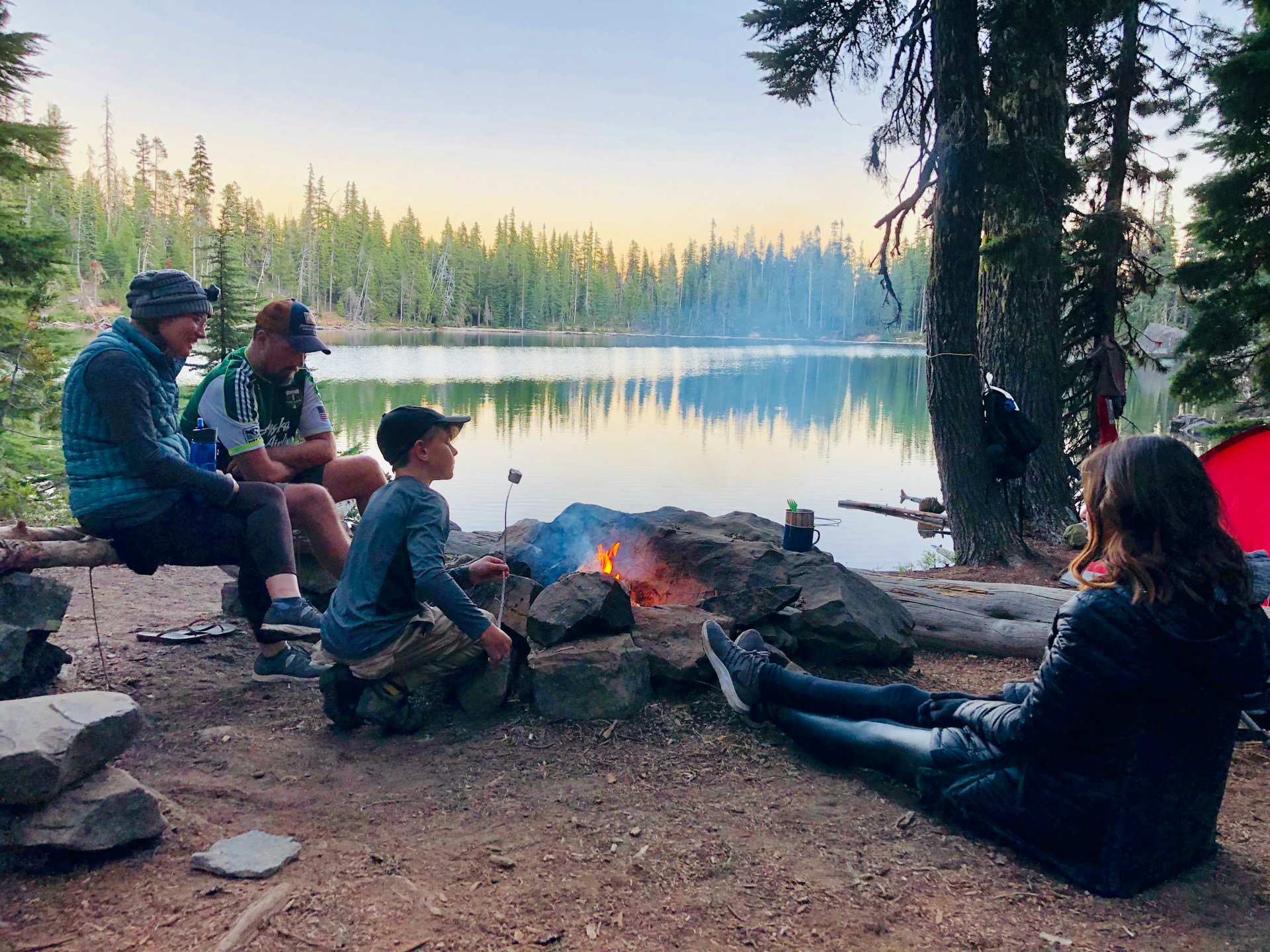
How to pack efficiently for a multi-week camping and hiking trip across the UK?
A well-packed backpack is your lifeline when embarking on a multi-week camping and hiking trip, especially when the destination is as diverse as the UK. Owing to the country's unpredictable weather, varied terrain, and innumerable attractions, packing efficiently can seem daunting for even the most seasoned travelers. But don't worry! We are here to guide you on the essentials, the tricks, and the hacks for packing your travel bag to perfection. Whether you're aiming for the rugged peaks of Scotland, the rolling hills of England, or the tranquil countryside of Wales, this comprehensive guide will assist you in preparing for your long trip ahead.
What to Bring: The Essential Packing List
The first step towards efficient packing is knowing what you need to bring. Remember, the goal isn't just to pack light, it's also about packing smart. This means selecting items that serve multiple purposes, are durable, and can be easily packed.
A voir aussi : What are the ideal lightweight cooking stoves for backpackers in the North York Moors?
For your multi-week hiking trip, start with the basics: camping equipment, clothing, food and water supplies, navigation tools, first aid, and personal items. Among camping gear, your backpack, tent, sleeping bag, and cooking equipment are critical. Aim for lightweight, compact versions of these items that can withstand the UK's unpredictable weather.
Clothing should include layers to adapt to changing temperatures and weather conditions – thermal underwear, moisture-wicking t-shirts, fleece or down jackets, a waterproof and windproof outer layer, hiking pants, and a couple of good pairs of socks. Aim to bring one pair of clothes per three days, to minimize the load. Footwear is equally important, with a sturdy pair of hiking boots and comfortable day shoes making it to the list.
Lire également : What are the signs of wildlife disturbance to be aware of while camping in UK forests?
Food and water supplies should be lightweight, high in energy, and easy to prepare. Opt for dehydrated meals, instant soups, nuts, and energy bars. Don't forget to pack a reliable water filter or purification tablets. Navigation tools like a map, compass, or GPS are crucial for your safety.
A basic first aid kit, personal hygiene items, and travel documents round off your essentials list.
How to Pack: Mastering the Art of Bag Packing
Now that you have your essentials sorted, the next challenge is fitting all these items into your backpack. It's not just about getting everything in, but also considering the weight distribution, ease of access, and protection of your gear.
Start by loading the sleeping bag at the bottom of your backpack. Then pack your items from heaviest to lightest. The heaviest items, like your tent and cooking gear, should be close to your back and centered in the bag. Closer to the front, pack your lighter items, such as clothing and food. Pack the items you will need throughout the day, like water, map, snacks, and rain gear, in the top or side pockets for easy access. Use packing cubes or Ziploc bags to organize small items and clothes.
Remember, efficient packing is a balance between space, weight, and accessibility.
What to Wear: Dressing for the UK's Varied Climate
The UK's varied weather can make packing clothes quite a challenge. The key is to pack so you can layer up or down according to the weather.
In summer, temperatures can vary from balmy to hot, but it can also rain at any time. Pack lightweight, breathable clothes and a waterproof layer. In autumn, temperatures drop, and there's more chance of rain. You'll need warmer layers like a fleece jacket, along with waterproof gear.
Winter calls for thermal layers, insulated jackets, and waterproof boots, while spring, although mild, can be unpredictable, so pack both lighter clothes and a few warm layers, along with your waterproof gear.
Regardless of the season, always pack a hat, gloves, and a scarf – they take up little space and can make a big difference on a chilly evening.
Gearing Up: Choosing the Best Backpack
Finally, the pack itself. A good backpack can mean the difference between a comfortable hike and a painful slog. When choosing your backpack, consider its size, fit, and features.
The size of your backpack will depend on the length of your trip and the amount of gear you need to carry. For multi-week trips, a capacity of 60 to 80 liters is typically suitable.
Fit is crucial. The ideal backpack should distribute weight evenly across your body, alleviate pressure from your shoulders, and prevent back strain. Try on several models, load them with weight, and walk around to find the best fit.
When it comes to features, look for a backpack with a waterproof cover, multiple compartments for organization, and easily accessible pockets.
Mastering the art of packing efficiently for a multi-week camping and hiking trip takes a bit of practice, but with these tips at hand, you'll be well on your way to an organized, comfortable, and enjoyable journey across the UK.
Considerations for Good Health and Safety
For a long-distance journey like your upcoming adventure, maintaining good health and safety is paramount. This requires a few additional items on your packing list.
Your first aid kit should include more than just band-aids and antiseptic. Pack medication for common ailments such as headaches, stomach upsets, and allergies. Don't forget to carry enough of any prescription medication you may need. Sunscreen, insect repellent, and lip balm will protect you from the elements.
Consider investing in a life-saving emergency blanket. These compact, lightweight blankets retain up to 90% of body heat, making them suitable for unexpected cold snaps or emergencies.
Your water bottle is another vital piece of kit. Hydration is critical during long hikes, and a refillable water bottle helps to ensure you drink plenty of fluids. Opt for an insulated model to keep your drinks cool or warm, as required.
Dressing appropriately is an essential part of maintaining good health. Merino wool is an excellent material for your clothing. It wicks away moisture, keeping you dry and comfortable, and has natural anti-bacterial properties, making it perfect for long trips.
Ensuring Comfortable Accommodation: Selecting the Right Sleeping Bag
A good night's sleep can mean the difference between an enjoyable day hike and a miserable one. Your sleeping bag is, therefore, a crucial item on your packing list.
When choosing a sleeping bag, consider the weather you'll encounter. For warmer months, a lighter bag will suffice. However, in colder seasons, a well-insulated, mummy-style bag will keep you warm. Pay attention to the sleeping bag's temperature rating, which tells you the lowest temperature at which it will keep you comfortable.
Size and weight matter too. The sleeping bag should be small and light enough to carry easily, yet sufficiently spacious for a good night's sleep. If you're tall or broad, look for extra-large sizes.
Most importantly, don't forget to pack a sleeping pad! Apart from providing additional insulation, a sleeping pad cushions you from the hard or cold ground, significantly enhancing your comfort.
Conclusion: Ensuring an Excellent Adventure
Ultimately, the key to successful long-term backpacking across the UK lies in meticulous preparation and smart packing. An efficient packing list, lightweight yet durable gear, and the right backpack are all essentials for a successful trip. Packing cubes can be a game-changer, helping you save space and stay organized.
From your merino wool base layer to your waterproof rain jacket, your clothing must be versatile and suitable for the varied UK climate. Remember to prioritize comfort in your hiking shoes and sleeping bag. Even small items like a water bottle or flip flops for resting your feet at the end of the day can make a significant difference to your comfort levels.
Travel insurance is another essential. It protects you against unexpected mishaps, such as injuries, lost gear, or trip cancellations. Don't leave home without it!
Lastly, remember that the best travel experiences don't come from having the perfect gear or following the best travel tips to the letter. They come from a spirit of adventure, a willingness to experience the new, and the capacity to marvel at the wonder that is the UK's landscape. Happy hiking!
